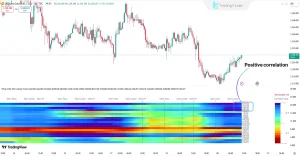
Commodities can be invested in directly with futures contracts or indirectly via stock investments such as commodity-linked ETFs and mutual funds that invest in companies producing or processing commodities.
As commodities are governed by market forces that can be unpredictable, many investors view them as risky investments. It’s essential that you understand these risks before including commodities into your financial plan.
Investing in Commodities
Investing in commodities offers investors an opportunity to profit from shifting patterns of supply and demand for raw materials, but this investment asset class can be unpredictable, which requires close monitoring by your financial adviser. By adding commodities as an asset class into your portfolio, they could also reduce overall risk as they have historically demonstrated low correlations with stocks and bonds.
No stockbroker office offers direct commodity purchases; however, you can gain exposure through exchange-traded funds (ETFs) or mutual funds that track these assets or the shares of companies that produce and distribute them. Before considering investing in commodities however, it’s essential to evaluate your risk tolerance as well as financial goals and objectives before moving forward with this investment decision.
Investors should also recognize that commodity prices can be more unpredictable than stocks and bonds, due to factors like climate and weather changes, workforce issues, global economic trends and political unrest.
Investing in Stocks
Investing in stocks involves purchasing shares of public companies and reaping profits as the company grows and makes more money. Performance may vary; however, stocks often provide greater returns than other investments such as bonds.
Blue chip stocks, or companies with long histories of consistent earnings and market presence, are generally considered safer investments with reduced risk and the potential to pay dividends. Growth stocks seek quick gains with greater volatility; value stocks focus on sustainable earnings with lower risk.
Economy, political instability, natural disasters and global conflict all affect stock prices and can cause them to either increase or decrease in value. Successful investing requires perseverance during down periods and using time-tested strategies such as dollar cost averaging and asset allocation can help investors manage risk more efficiently. An Ameriprise advisor can work with you to design an individualized portfolio tailored specifically to your goals, investment horizon and risk tolerance.
Investing in ETFs
ETFs offer an easy, cost-effective way to integrate certain asset classes into your overall investment portfolio based on your financial goals and risk tolerance. A well-diversified mix of ETFs typically includes growth stocks, value stocks and fixed income investments. Furthermore, some ETFs may target specific sectors like energy or finance while others track country markets or regions around the globe. Leveraged ETFs – which attempt to double or triple benchmark performance – may increase gain potential quickly while potentially being more volatile than their benchmark counterparts.
Investors also use ETFs to adapt their portfolios in response to economic cycles. If indicators show expansion, you might allocate some funds towards growth-oriented ETFs such as biotechnology or technology; conversely, if indicators suggest market saturation is imminent, you might diversify into defensive ETFs like utilities and consumer staples instead.
Investing in Mutual Funds
Futures contracts provide the ideal way to invest in commodities, as these contracts stipulate their future delivery price and terms. Futures contracts are the go-to method for large investors like airlines and trucking companies that require multiple loads of the same commodity at any one time for operations.
However, investing directly in commodities may be challenging for individual investors. Doing so would involve finding storage for physical products (like corn or oil), purchasing insurance policies against potential spoilage or loss and organizing logistics such as transporting the products when needed.
Mutual funds offer individuals several effective options for investing in commodities. Usually following an index, these funds provide investors with broad exposure to various commodities without having to store or transport physical products themselves. NerdWallet’s ratings take into account fees and minimums, investment choices, mobile app features and customer support – helping you to find the ideal options for your money.







